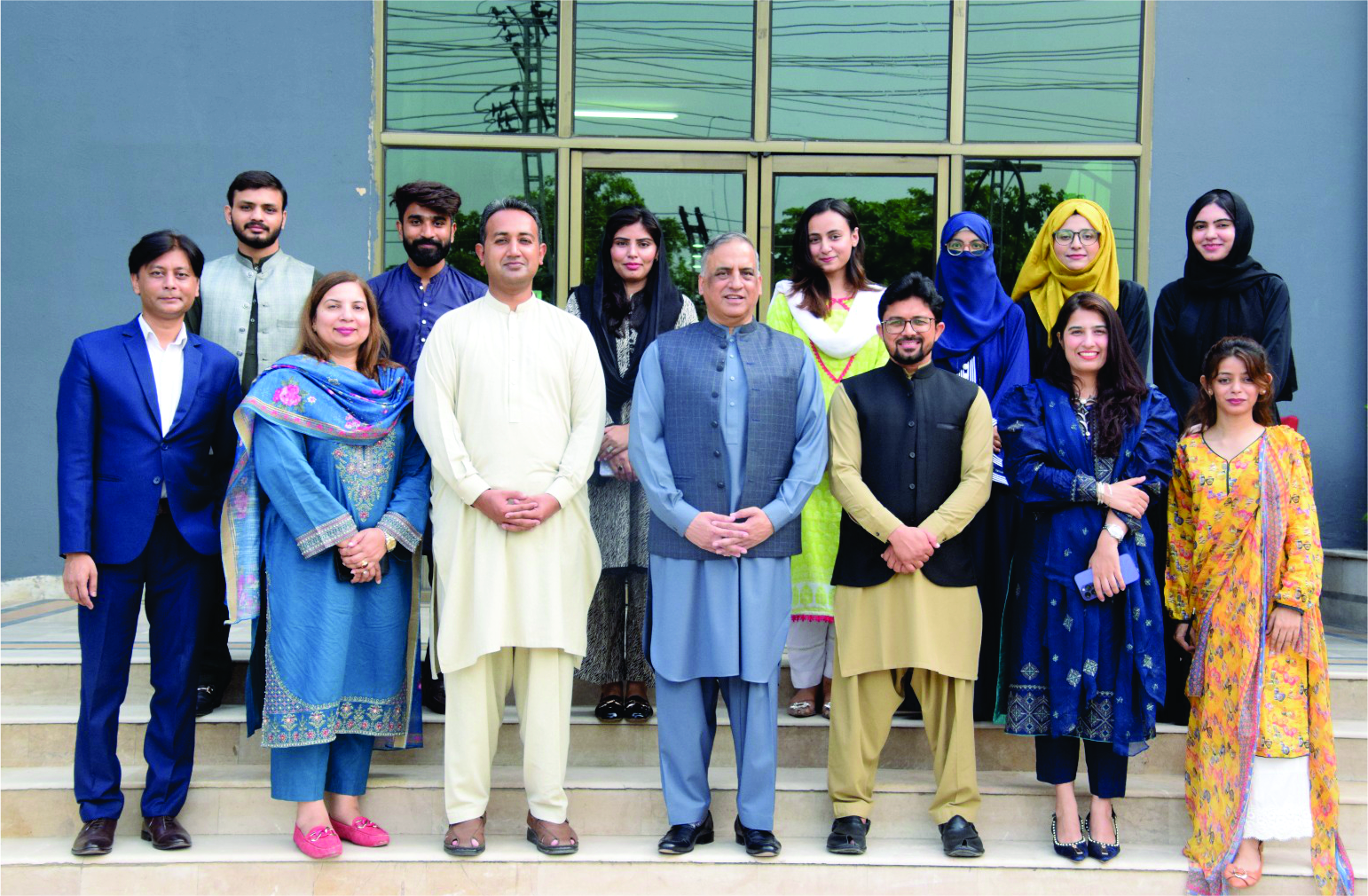3rd Summer School on Maritime Affairs (SSMA) 2024

CRIMA organized the 3rd Summer School on Maritime Affairs (SSMA) spanning over five days. The primary objective of the event was to raise awareness about various aspects of the maritime sector. The 3rd SSMA commenced with the recitation of the Holy Quran, followed by a welcome speech by Prof Dr Sajid Mehmood Shahzad, Vice Chancellor MUL. In opening speech VC MUL extended a warm welcome to all participants, scholars, and maritime researchers. He emphasized the crucial role of oceans in sustaining life on Earth, highlighting their ability to absorb significant amounts of CO₂ and regulating global temperatures. Prof Dr Sajid Mehmood Shahzad underscored the importance of Pakistan's maritime potential, especially with strategic location in the Arabian Sea and the development of Gwadar Port as part of the China-Pakistan Economic Corridor (CPEC). He reiterated the importance of robust maritime policies for economic growth and regional connectivity, stressing CRIMA's role in shaping Pakistan's maritime future through research and intellectual discourse.
Day 1:
The day 1 of the 3rd SSMA moderated by Dr Waqasia Naeem, focused on the significance of internationally coordinated efforts to mitigate marine pollution. Two distinguished speakers Dr Muhammad Shareh Qazi and Dr Nazia Sher Khan highlighted the potential role of Pakistan in these global efforts. The discussions revolved around the importance of collaborations with international NGOs and the training of graduates in technologies that address marine pollution.
Day 2:
The day 2 of the 3rd SSMA was moderated by Ms Iqra Manzoor. On the second day the discussion was on the impact of climate change on ocean health. Three speakers presented their insights. The speakers were Dr Fasiha Safdar, Dr Waheed Ullah Khan, and Mr Abdul Hameed Waris. The speakers emphasized the urgent need for ocean-based mitigation strategies to reduce greenhouse gas emissions and protect marine ecosystems. They also discussed the necessity of enhancing the climate resilience of coastal communities to safeguard their livelihoods and well-being.
Day 3:
The day 3 of the 3rd SSMA was moderated by Ms Rabia Shafique. The discussions covered the threats of fisheries, marine resources, and aquaculture. The day featured three speakers Mr Moazzam Khan, Dr Waliullah Masroor, and Ms Safia Mansoor. The topics discussed during the day underlined the essential role these sectors play in global food security, economic growth, and environmental sustainability. Discussion highlighted the importance of innovative practices and responsible stewardship to ensure the long-term viability of these resources.
Day 4:
The day 4 of the 3rd SSMA was moderated by Ms Iqra Shahbaz. The discussion focused on marine ecosystems, including seagrass, mangroves, and coral reefs. Three expert speakers included Mr Chilong Victor, Dr Asma Tabassum, and Dr Ghazala Jabeen. The speakers discussed the crucial role these ecosystems play in maintaining biodiversity and supporting coastal protection. They also addressed the pressing need to mitigate marine pollution through effective strategies and policies to preserve these ecosystems for future generations.
Day 5:
The day 5 of the 3rd SSMA was moderated by Muhammad Subhan Saleem Rana. The day featured discussions on the importance of shipping for Pakistan and the maritime security strategy of India. The two eminent speakers included Cdre Muhammad Irfan Taj (Retd) SI (M) and Cdr (Retd) Muhammad Azam Khan highlighted the strategic significance of Pakistan's shipping sector in world affairs and discussed the offensive posture of India's naval forces. The discussions underscored the potential threat to regional peace posed by India's maritime strategy in the Indo-Pacific region.
Muhammad Ishfaq, Director of CRIMA, addressed crucial role of the maritime sector and the blue economy in promoting sustainable development and prosperity during his closing remarks at the 3rd SSMA 2024. He expressed gratitude to the Vice Chancellor of Minhaj University Lahore, the esteemed speakers, and the participants for their involvement in the week-long event on the theme of "Blue Economy and Sustainable Development.”
Drs Ishfaq praised the insightful presentations and productive discussions, noting that the summer school's objectives were fully achieved. He highlighted the participation of 14 expert speakers from various national and international institutions, which provided valuable learning opportunities for scholars and students in maritime affairs and marine sciences. Key topics covered during the school included the blue economy, sustainable development, climate change, marine ecosystems, and the maritime industry's future. He admired Minhaj University Lahore's role in fostering awareness and identifying opportunities in the maritime domain. Dr Ishfaq acknowledged CRIMA's efforts in connecting academia with the maritime industry globally and encouraged continued research and collaboration. In conclusion, Dr Ishfaq expressed deep appreciation for the CRIMA team, the media and marketing department, and the administration for their hard work. He also thanked all participants and presenters, officially closing the 3rd SSMA while looking forward to future events, including the 3rd International Maritime Conference on February 27, 2025 and the Maritime Winter School in December this year. He concluded by wishing everyone prosperity and good health.
